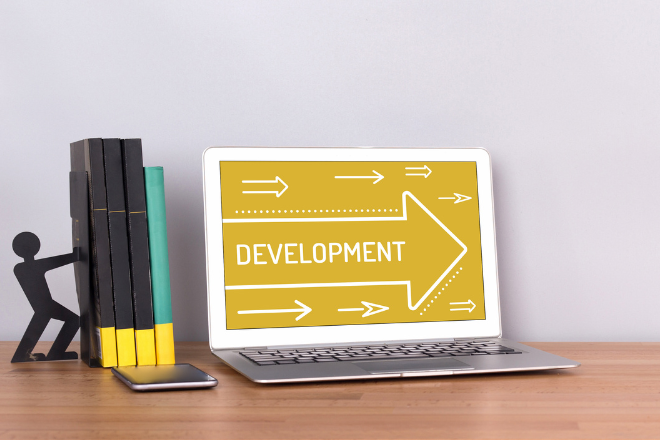How to make a career change in your 20s, 30s and 40s

Long gone are the days of having a “job for life”; with the rise of the gig economy, the declining stigma of “job-hopping”, and an increasingly casualised workforce – it’s normal for one to change and pivot through industries as their professional aspirations direct them.
Such tendencies aren’t limited to younger demographics, either. A change in career can come at any age, whether you’re in your 20s, in your 30s, or well into your 40s and 50s. With the right drive and experience, you can gracefully make the shift towards any career path you choose.
Below, we break down the ways a professional can easily switch careers, and how training with Upskilled can help.
Is there an age limit to changing careers?
These days, you’re never “too old” to forge new career paths – all that matters is having the right skills, experience, and workplace attitude. Not only are career pivots becoming increasingly common among Australian workers (with 2022 experiencing one of the highest job mobility rates since 2012), but the traditional, negative stereotypes once surrounding mature-aged workers are now starting to dissipate, especially as the demographic continues to reskill in the latest technological trends.
In fact, those over 55 and over have now built a new name for themselves in the entrepreneurial landscape – the aptly-coined term, “seniorprenuers”.
Longer lifespans and a general redefining of what a “mature-aged” employee is have also contributed to this change in perspective. As long as you’ve got the drive, the passion, and the skills to back it up, a career transition is possible at any age.
How do I plan a career change smartly?
Define your motivations, wants, and goals
Common as they may be, career pivots shouldn’t be done on a whim. If you find yourself looking to make a change, take the time to weigh out your reasons and what you hope to find in your next opportunity. Consider why you’re looking for change – is it the lack of pay? Poor workplace culture? Or simply the need for greater challenges?
Once you’ve defined your motives, make a list of the factors you enjoy in your current role, along with those you wish to see in your next one. Creating a blueprint of your desired career path can help you set the goals required to get there.
Additionally, take stock of your current skills and strengths to determine whether they fit or hold up to your desired roles. Chances are, you may need to build on your current experience, which is where the next step comes in.
Upgrade your current skillset
Whether you’re headed towards a new industry or looking to advance from your current position, upskilling is a vital step.
This allows you to refine and retool your skills for current job market demands, helping you stay relevant and competitive for your chosen field. Online courses are among the best options for achieving this, as they often come with a wide variety of professional areas and offer workers the flexibility of training alongside their work commitments.
Upskilled, for example, provides both job-seekers and career-changers with a generous selection of online courses across Australia’s thriving industries. No matter your age, you can easily pick up a bootcamp, short course, certificate, diploma or even degree-level training in the field of your choice, helping you beef up the skills you need for your resume.
Take advantage of your experience
Despite the aging stigma of being a “mature-aged” professional, being years older in the game typically comes with the benefit of having greater experience and industry knowledge. Use this to your advantage; when vying for higher positions in your field, be sure to highlight the years of expertise, workplace contributions, and professional qualifications under your belt.
Switching to a new industry with less technical experience, however, may be a greater challenge. In these cases, its best to make the most of your transferable skills, showcasing how they can benefit your role in this new profession.
For example, making the move from retail to marketing may be a big professional leap – but the communication skills and sales knowledge you’ve picked up as a retail worker can very well apply to various marketing roles, such as the position of a brand, campaign, or customer success manager.
Revamp your resume and online profiles
On top of honing your current skills and gaining new ones, be sure to also refurbish your resume and online social media profiles. This is a critical step for impressing potential employers, asthey’re often the first impression you give of what you have to offer.
Take the time to look over your resume and make any necessary polishes – these could include removing old, irrelevant positions; adding in new skills you’ve built; refreshing your contact information; and proofreading for any errors. With most employers now using automated tools that scan for relevant resume keywords, you may also wish to sprinkle in terms or buzzwords related to your field and position.
The same maintenance applies for your social media profiles, such as the experience and achievements displayed on your LinkedIn. Those without a LinkedIn presence can benefit from building one, as this allows you to establish (and promote) your personal brand online – and with 93% of recruiters looking through the platform for candidates, you may just increase the chances of landing your new dream role.
Is it a good idea to get a career change coach?
No matter the stage in your career, hiring a career coach can be an incredibly helpful way of better navigating your professional journey. These individuals are experts in multiple facets of career planning – including resume-writing, industry networking, and pinpointing your best assets to market to employers. They can help set you up for career success, whether it’s helping you determine a new passion or preparing you for potential interviews.
Should their time and finances permit, career changers will thus have much to gain from having a coach. From providing valuable industry advice to motivation and job-hunting techniques, they’ve got plenty to offer any ambitious professional, regardless of age.
Looking to switch industries?
As mentioned, taking up a course (or a few) is a great way to help you take the leap. Upskilled offers training across Australia’s most in-demand industries, from rising fields in IT to lucrative roles in business. Best of all, each program is delivered online, helping you study according to your specific needs and schedule. Make the career change you’re after today, and enquire with us on a course.



)
)

